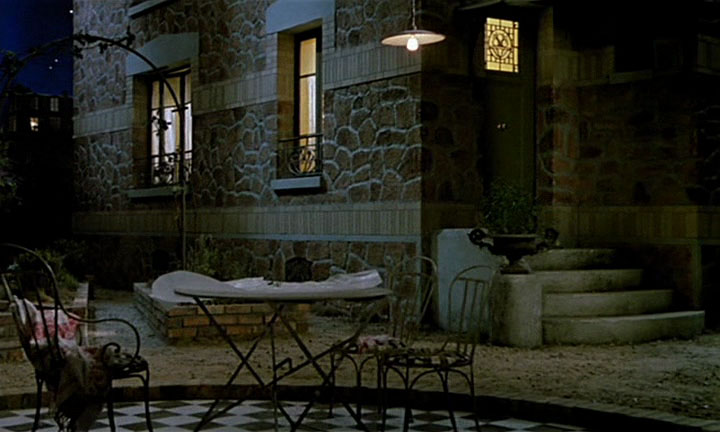From the Chicago Reader (April 8, 1988). — J.R.

Alain Resnais’ masterpiece, easily his best film in years, is bound to baffle spectators who insist on regarding him as an intellectual rather than an emotional director, simply because he shares the conviction of Carl Dreyer and Robert Bresson that form is the surest route to feelings. In his 11th feature, he adapts a 1929 boulevard melodrama by a forgotten playwright named Henry Bernstein, and holds so close to this “dated” and seemingly unremarkable play that theatrical space and décor — including the absence of a fourth wall — are rigorously respected, and shots of a painted curtain appear between the acts. None of this is done to strike an attitude or “make a statement”: Resnais believes in the material, and wants to give it its due. Yet in the process of doing this, he not only invests the original meaning of “melodrama” (drama with music) with so much beauty and power that he reinvents the genre, but also proves that he is conceivably the greatest living director of actors in the French cinema, and offers a way of regarding the past that implicitly indicts our own era for myopia. (Mélo is certainly a film of the 80s and not an antique, but it may take us another 20 years to understand precisely how and why.) Using the same talented quartet that appeared in his last two films — the remarkable André Dussollier (Le beau mariage) as a gifted concert violinist, Pierre Arditi as his suburban friend, Sabine Azema as the latter’s wife who falls in love with the violinist, and Fanny Ardant (in a smaller role) as her cousin — Resnais cuts and moves his camera with impeccable dramatic logic that helps to give their performances maximum voltage. After collaborating on all his previous films with contemporaries, he joins forces here with an author of over half a century ago, and his concentrated treatment of the 20s, while never less than modern, retrieves that era in all its mysterious density. For a comparable marriage between the minds of two periods equally far apart, one may have to go back to Dreyer’s 1964 Gertrud, which adapted a play written in 1906 — a film whose very lengthy takes, privileged musical interludes, and renderings of time and passion in a mode at once classic and avant-garde are often evoked here. (Spectators who find the slowness and intensity of Dreyer unbearable and/or laughable should probably stay away.) An incomparable masterpiece. (Fine Arts)

Published on 09 Apr 2013 in Featured Texts, Featured Texts, by jrosenbaum

